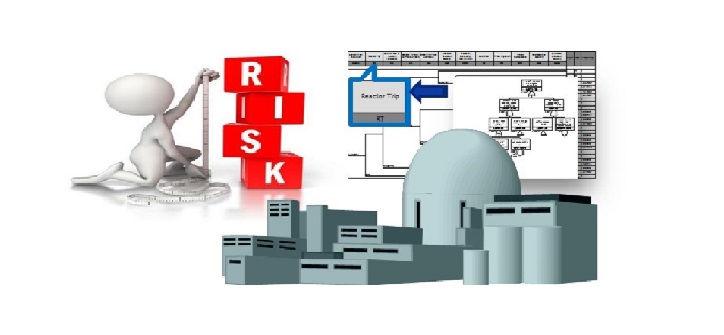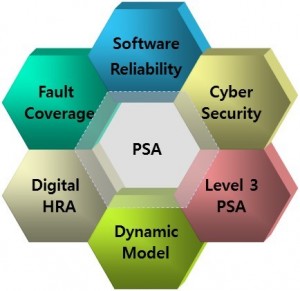
A nuclear power plant is one of the most safety-critical infrastructures. The reliability or risk evaluation of nuclear power plants is crucial in plant designing, licensing, and various decision makings.
Probabilistic Safety Assessment (PSA) or Probabilistic Risk Assessment (PRA) is to estimate risk by computing real numbers to determine what can go wrong, how likely is it, and what are its consequences. Thus, PSA provides insights into the strengths and weaknesses of the design and operation of a nuclear power plant. PSA can estimate three levels of risk.
- Level 1 PSA estimates the frequency of accidents that cause damage to the nuclear reactor core. This is commonly called core damage frequency (CDF).
- Level 2 PSA, which starts with the Level 1 core damage accidents, estimates the frequency of accidents that release radioactivity from the nuclear power plant.
- Level 3 PSA, which starts with the Level 2 radioactivity release accidents, estimates the consequences in terms of injury to the public and damage to the environment.

The major research of this lab has been focused on the enhancement of risk assessment quality by resolving the emerging issues, and risk-informed applications such as the improvement of plant designing based on the risk assessment results. Followings are the research topics of this lab.
- Reliability evaluation of digital I&C systems in nuclear power plants
- Human reliability evaluation for digitalized operational environments
- Cyber security evaluation of digitalized nuclear power plants
- Level 3 PSA for nuclear facilities
- Dynamic PSA modelling
- Multi-Unit PSA modeling
